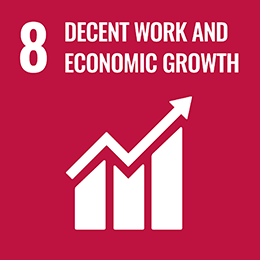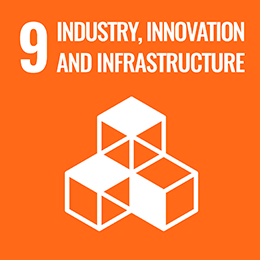Rise of the Robots

Share this article
Are we heading for the end of the human era?
“I believe that at the end of the century the use of words and general educated opinion will have altered so much that one will be able to speak of machines thinking without expecting to be contradicted.” ― Alan Turing, Computing Machinery and Intelligence
Somewhere between David in Steven Spielberg’s 2001 film, A.I. Artificial Intelligence and OSHBot, Orchard Supply Hardware shop’s new customer service robot in lesforcen José, California, the great grandchildren of Alan Turing’s machines will shape the future of human employment.
If Stephen Hawking is to be believed, robots will also shape the future of the human race: "The primitive forms of artificial intelligence we already have, have proved very useful. But I think the development of full artificial intelligence could spell the end of the human race,” said Hawking, speaking to the BBC.
Martin Ford, author of Rise of the Robots: Technology and the Threat of a Jobless Future, added his bleak take suggesting that this time there will not be a redistribution of workers to another industry. Instead, by eliminating the livelihoods of the middle classes, the technological revolution will not only increase the wealth divide but, perhaps ironically, destroy the spending power of those that buy the products the robots are manufacturing.
There are at least five different white collar jobs that robots have taken. In nearly every industry there is an example where advancement in technology to assist efficiency and lower costs could lead to a loss of jobs: Starwood Hotels, with its keyless check in could see reception-free hotels in the future; computers that can mark essays will affect teachers; and Associated Press can create more than 3,000 corporate earnings articles automatically, while Forbes’ robot financial journalist, called Narrative Science, could spell fewer jobs for cub reporters.
As machine learning advances, productivity will rise. Technology developers are convinced that innovation is the path to freedom—but the arguments presented so far suggest that, meanwhile, employment will fall.
The policy implications of the "robot effect" was the subject of discussions held in the World Economic Forum in Davos in January 2014, between McKinsey’s Rik Kirkland, Jeremy Howard, a data scientist, Erik Brynjolfsson, a professor at Massachusetts Institute of Technology, Andrew McAfee, author of The Second Machine Age: Work, Progress, and Prosperity in a Time of Brilliant Technologies, and Robert Shiller, author of Finance and the Good Society, who said “We need to start planning for how we will deal with the inequalities produced by advanced technology.”
But where does highly intelligent and rapidly evolving technology leave the financial services industry? Finance, especially hedge funds, has relied on money-making algorithms for some time. Today, some of the most successful managers look like mini universities. Winton Capital, one of the biggest commodity trading advisers, employs 145 data scientists and software engineers, while Renaissance Technologies Corporation only hires scientists.
"We hire physicists, mathematicians, astronomers and computer scientists and they typically know nothing about finance," said Jim Simons, a Harvard and MIT maths teacher, in a keynote address at the International Association of Engineers annual conference in 2007. As such, systematic traders are constantly evolving their models to take advantages of the fast changing opportunities.
One of the hottest FinTech trends globally is the ‘robo-adviser’, an online portfolio management tool for the wealth management space. According to Deloitte there are 10 Disruptive Trends in Wealth Management, and science versus human-based advice is one of them.
MyPrivateBanking Research’s latest report Robo-Advisors 2.0: How Automated Investing is Infiltrating the Wealth Management Industry estimates that global assets under management of the robo-adviser services will reach $20 billion by the end of 2015 and $450 billion by 2020.
In the US, the top 10 automated online investing names include Betterment, Wealthfront and FutureAdvisor, according to The Street. The latter, the fifth largest robo-advisory firm, was bought by BlackRock, the world’s biggest asset manager, this summer. ThinkAdvisor suggests that Wealthfront or Betterment could be next. Rapid M&A in this space is likely as existing wealth managers either look at building, buying or partnering with automated portfolio recommendation platforms, according to Deloitte’s Robo-Advisors: Capitalising on a growing opportunity.
In the UK, Aberdeen Asset Management has just bought Parmenion Capital Partners. This, together with LV= taking a stake in Wealth Wizards and existing players Strawberry Invest and Nutmeg, is likely to trigger the growth of the UK robo-adviser market. Deloitte’s report suggests that lower fees and talking to a digital savvy generation that are used to a personalised online experience are among the drivers of this FinTech trend.
In the US, robo-advisers must be registered investment advisers, which are regulated by the Securities and Exchange Commission, while in the UK discussions about further regulation and the impact on existing advisers is only just starting. Not all automated platforms are the same in terms of portfolio selection and fees and service levels. Assumptions made by human programmers still determine the output of any 'systematic' investment programme.
So, human inputs on key investment assumptions still determine investment outcomes, but what about customer service? According to new Cerulli Advisors' research, technology innovations will help to grow advisers’ businesses by empowering the investors. One high-profile quant hedge fund manager aspires to give her clients "client numbers" and a call centre, rather than employ client service professionals. But if the next generation of investors are native netizens, is this what they want? According to McKinsey they will seek ' translators'.
Echoing this, Salesforce believes that millennials are even more likely to seek face to face interactions with human advisers than their Gen-X parents. So much so that established US mutual fund giants Schwab and Vanguard have already gone bionic and offer an option to interact with a human adviser. For now, humans and technology will continue to work together and their success, or failure, is more likely to be due to a human action than a rogue robot.
Photo: © Niki Natarajan 2017
Artist: Caro Pepe/Age Age
Article for information only. All content is created and published by CdR Capital SA. The views and opinions expressed in this article are those of the author(s). Information on this website is only directed at professional, institutional or qualified investors and is not suitable for retail investors. None of the material contained on this website is intended to constitute an offer to sell, or an invitation or solicitation of an offer to buy any product or service. Nothing in this website, or article, should be construed as investment, tax, legal or other advice.
Related articles
Revolution or Evolution?
In 2013, Carl Benedikt Frey and Michael Osborne estimated that by 2033 some 47% of jobs in the US could be replaced by computers. For many in financial services, this will not come as a surprise as machines are already able to carry out certain trades.

FinTech & Banks
McKinsey that suggested that between 20% and 60% of banking profits globally were vulnerable to disruptive FinTech entrants but the surprise should be that it has taken this long to gain real momentum. And the most interesting question should be why?

FinTech: Are Banks Broken?
Hard to imagine that The Innovator’s Dilemma: When New Technologies Cause Great Firms to Fail was written in 1997; a year before Apple’s iMac and Google were launched and the year that Microsoft became the most valuable company in the world.




